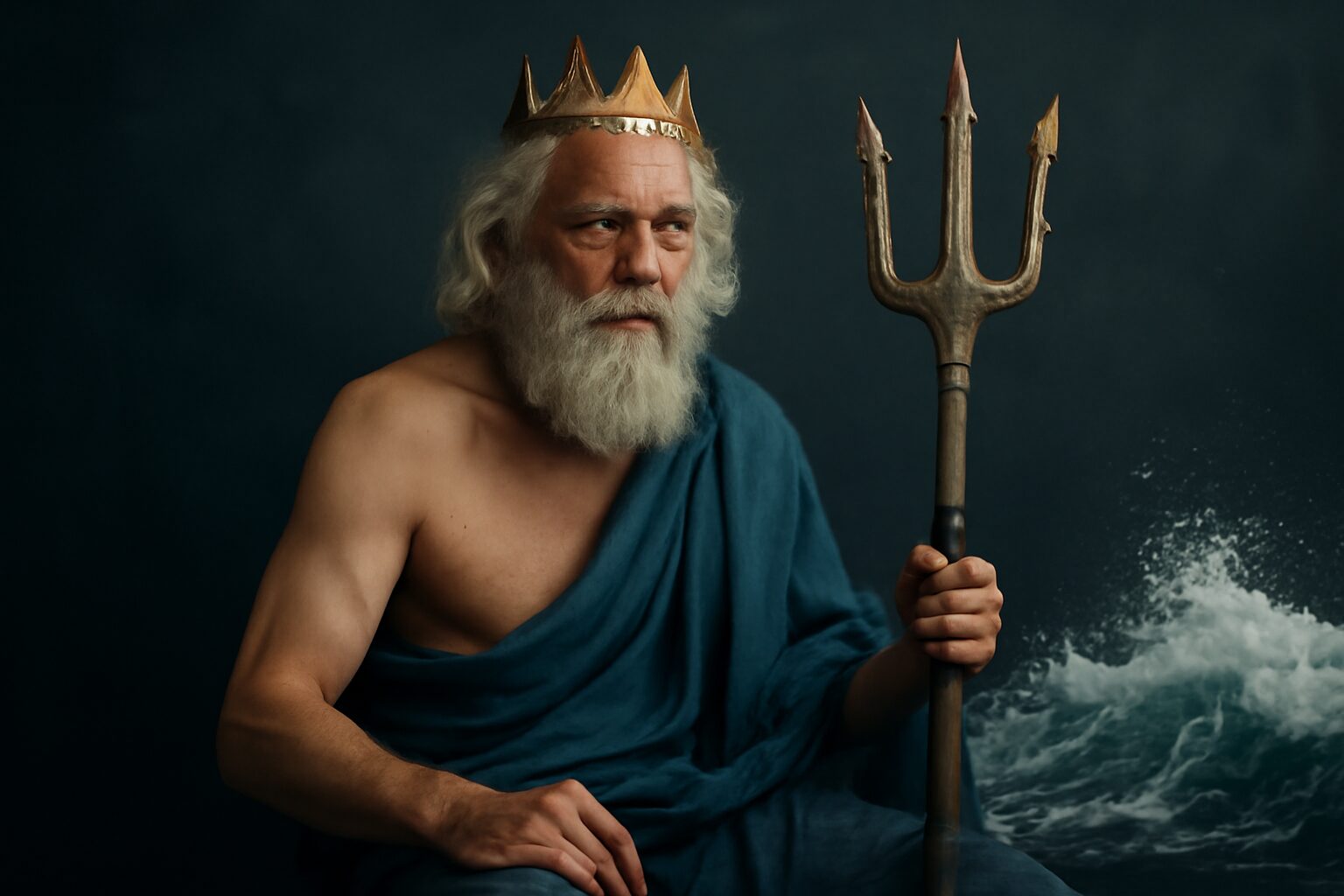Atabyrius: The Mighty Bull God of Rhodes
In the rich tapestry of Greek mythology, Atabyrius stands as a fascinating yet lesser-known deity worshiped primarily on the island of Rhodes. Often depicted as a powerful bull or a god with bull-like attributes, Atabyrius was associated with strength, fertility, and the protection of the land.
Origins and Worship
The cult of Atabyrius originated in the ancient city of Ialysos on Rhodes, where he was venerated as a local god. His name is believed to derive from Mount Atabyrion (modern Attavyros), the highest peak on the island, where his sanctuary stood. Worshipers climbed the mountain to offer sacrifices, particularly bulls, in his honor.
Atabyrius was often equated with Zeus Atabyrios, suggesting a syncretism between the local Rhodian deity and the king of the Olympian gods. This connection highlights how regional gods were sometimes absorbed into the broader Greek pantheon.
Mythology and Symbolism
As a bull-god, Atabyrius embodied raw power and virility. Bulls were sacred animals in many ancient cultures, symbolizing both destructive force and agricultural fertility. The people of Rhodes likely saw Atabyrius as a protector of their island and a bringer of prosperity.
One surviving myth tells how Atabyrius helped the Rhodians by sending a swarm of snakes to drive away invading barbarians. This story emphasizes his role as a defender deity and connects him to the earth's primal energies.
Cultural Significance
The worship of Atabyrius reflects the importance of local cults in ancient Greece alongside the more famous Olympian gods. His bull imagery connects him to other Mediterranean bull cults, such as those of the Minoan civilization, suggesting possible cultural exchanges.
Coins from Rhodes frequently featured Atabyrius's image, usually as a charging bull, demonstrating his importance to Rhodian identity. The mountain sanctuary remained an important religious site throughout antiquity, attracting pilgrims seeking the god's favor.
Though not as widely known as major Olympians, Atabyrius offers a fascinating glimpse into how ancient Greeks worshiped deities tied to specific places and natural features, blending local traditions with the broader Greek religious framework.
Alternative Names for Atabyrius
God Name: Zeus Atabyrios (Greek)
An epithet of Zeus, associating him with Mount Atabyrion in Rhodes. This name reflects the regional worship of Zeus under this title, emphasizing his connection to the mountain and its significance in local cult practices.
God Name: Jupiter Atabyrius (Roman)
The Roman equivalent of Zeus Atabyrios, where Jupiter is identified with the Greek Zeus. The epithet 'Atabyrius' is retained, indicating the same regional and cultic associations as in the Greek context.
God Name: Atabyrios (Greek)
A standalone name used in some contexts to refer to the deity worshiped at Mount Atabyrion, distinct from but often syncretized with Zeus. This reflects the local Rhodian tradition where the god may have had an independent identity before being associated with Zeus.
Tales about Atabyrius
The Guardian of the Deep and the Healer's Touch
In the ancient seas surrounding the island of Rhodes, Atabyrius was known as a vigilant protector of its waters. One day, a terrible plague swept through the marine life, causing fish to fall ill and corals to wither. Distressed, Atabyrius sought the aid of Iaso, the goddess of recuperation and healing. Iaso, moved by his concern, descended into the depths with her remedies. Together, they purified the waters with herbs and incantations, restoring health to the sea. In gratitude, Atabyrius raised a temple in her honor on the coast, where sailors would later pray for safe voyages and healing.
The Storm and the Soothing Breeze
During a fierce tempest conjured by the wrath of Poseidon, the seas around Rhodes churned violently, threatening to swallow ships whole. Atabyrius, though a lesser sea deity, braved the storm to calm the waves. He called upon Zephyrus, the gentle west wind, for assistance. Zephyrus, known for his soothing breezes, answered the plea. With a soft exhale, he eased the fury of the storm, guiding the winds to a peaceful lull. Grateful for this alliance, Atabyrius and Zephyrus were forever remembered as harmonizers of sea and sky, ensuring safe passage for all who traveled their domains.
Frequently Asked Questions
Who is Atabyrius in Greek mythology?
Atabyrius is a lesser-known sea deity in Greek mythology, often associated with the island of Rhodes. He is sometimes linked to the god Poseidon and is considered a protector of sailors and fishermen.
Why is Atabyrius important in Greek mythology?
Atabyrius represents the ancient Greeks' connection to the sea and their reliance on maritime activities. As a sea deity, he symbolizes protection and guidance for those who ventured into the waters, reflecting the cultural importance of the sea in Greek life.
What can we learn from the stories of Atabyrius?
The stories of Atabyrius highlight the Greeks' reverence for the sea and their belief in divine guardianship. They teach us about the ancient world's dependence on nature and the ways mythology was used to explain and seek control over natural forces.
How does Atabyrius compare to other Greek sea gods?
Atabyrius is a more localized and lesser-known figure compared to major sea gods like Poseidon or Oceanus. While Poseidon ruled the seas broadly, Atabyrius had a specific regional focus, particularly around Rhodes, showing the diversity of Greek mythological traditions.
Are there any modern connections to Atabyrius?
Today, Atabyrius can be seen as a symbol of maritime heritage and the enduring human connection to the sea. While not widely worshiped now, his legacy lives on in the study of Greek mythology and the cultural history of Rhodes.













